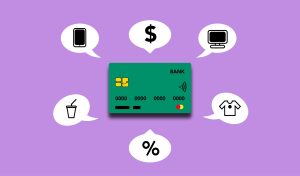How To Protect Family Finances During Recessions
In times of economic uncertainty, protecting family finances becomes a top priority. Recessions can bring unexpected challenges and financial setbacks that can significantly impact the stability of a household. However, with proper planning and strategic decision-making, families can safeguard their finances during a recession and ensure their financial well-being in the long run.
Assess your Financial Situation
The first step to protecting family finances during a recession is to assess your current financial situation. Start by looking at your income, expenses, and savings. This will give you a clear understanding of where your money is going and where you may need to make adjustments.
Identify Essential and Non-Essential Expenses
During a recession, it is important to prioritize your expenses. Identify which expenses are essential, such as groceries, housing, and utilities, and which ones are non-essential, such as dining out or entertainment. This will help you cut back on unnecessary expenses and save money.
Create a Budget and Stick to It
A budget is a crucial financial tool that can help you control your spending and save for the future. Create a budget that includes your essential expenses and savings goals. With a budget in place, you can better manage your finances and avoid overspending during a recession.
Review and Reduce Debt
Having too much debt can be a significant burden during a recession. High-interest debt, such as credit card debt, can quickly spiral out of control and become unmanageable. Review your debts and prioritize paying off high-interest debts first. Consider consolidating your debts or negotiating with creditors for lower interest rates or payment plans.
Build an Emergency Fund
Having an emergency fund is crucial during a recession. It can help you cover unexpected expenses without having to resort to high-interest debt or draining your savings. Aim to save at least 3-6 months’ worth of expenses in an emergency fund. If you already have an emergency fund, consider adding to it to provide an extra cushion during a recession.
Invest in Long-Term Stability
While it may be tempting to pull all investments during a recession, it is important to think long-term and not make decisions based on short-term market fluctuations. Consult a financial advisor to assess your investments and make strategic decisions that will provide long-term stability for your family’s finances.
Consider Multiple Sources of Income
Income diversification can help protect against job loss or reduced income during a recession. Consider taking on a second job or finding ways to generate passive income to increase your financial stability. This can also provide a sense of security during uncertain economic times.
Be Prepared for the Unexpected
Lastly, it is essential to have contingency plans in place to protect family finances during a recession. Consider additional insurance coverage, such as unemployment insurance or disability insurance, to safeguard against unexpected events. Have a plan for managing temporary job loss or reduced income and be prepared to act quickly if needed.
In conclusion, protecting family finances during a recession requires proactive planning and making smart financial decisions. Assessing your current financial situation, reducing debt, saving for emergencies, investing for long-term stability, and having contingency plans in place are all crucial to protecting your family’s finances during tough economic times. By following these tips, families can safeguard their financial well-being and emerge from a recession stronger and more financially stable.










